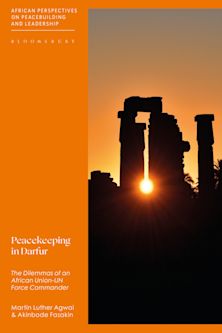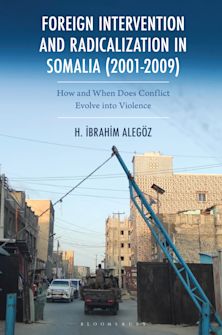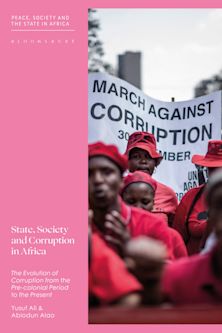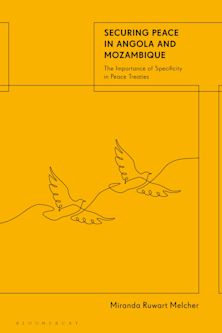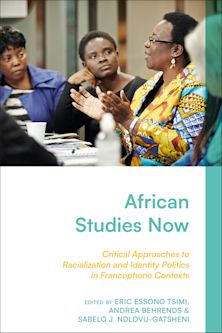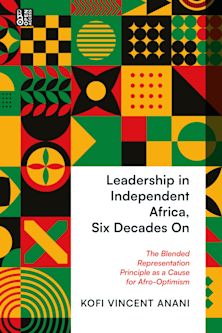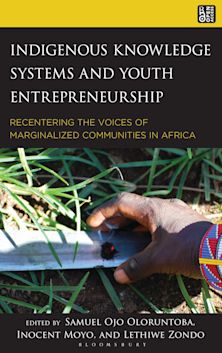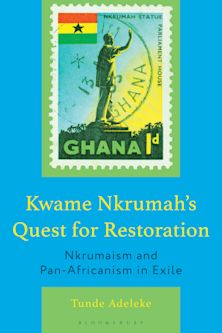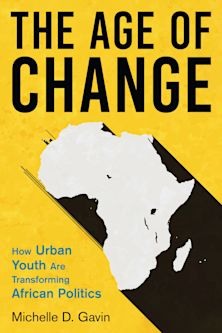- Home
- ACADEMIC
- Politics & International Relations
- African Politics
- The Legacy of Slavery in Coastal Kenya
The Legacy of Slavery in Coastal Kenya
Memory, Identity, and Heritage
The Legacy of Slavery in Coastal Kenya
Memory, Identity, and Heritage
You must sign in to add this item to your wishlist. Please sign in or create an account
Description
To either achieve or resist domination, some postcolonial and post slavery societies appropriate and contest the current memories on slavery. This occurs more often where the sites of slavery are tourist attractions that positively empower the communities through economic benefits, resulting in an emergence of 'new' memories of the past and a constant construction and reconstruction of identity. In The Legacy of Slavery in Coastal Kenya: Memory, Identity, and Heritage, Herman Ogoti Kiriama examines how two communities in coastal Kenya, one whose identity is contested by the community members and another one who are seeking recognition, have tried to remember their past and the role that tourism has played in the process of remembering and or forgetting. Kiriama argues that heritage, memory, and identity are fluid and individuals can claim several identities depending on their socio-politico-economic contexts.
Table of Contents
List of Tables
Preface
Acknowledgments
Chapter One: Inside the Hole
Chapter Two: The Historical Background
Chapter Three: Oral Traditions
Chapter Four: The Archaeological Evidence
Chapter Five: Archival Evidence
Chapter Six: Presentation of the Shimoni Cultural Landscape
Chapter Seven: Memory and Heritage Interpretation: Frere TownFreed Slave Settlement, Mombasa
Conclusion
References
Product details
| Published | Oct 26 2022 |
|---|---|
| Format | Ebook (PDF) |
| Edition | 1st |
| Extent | 206 |
| ISBN | 9781978785915 |
| Imprint | Lexington Books |
| Illustrations | 17 b/w photos; 2 tables; |
| Publisher | Bloomsbury Publishing |
About the contributors
Reviews
-
With all that said, The Legacy of Slavery in Coastal Kenya is a readable book, well-written in plain language, and free of jargon that would put of readers. Heritage practitioners, professional historians, archaeologists, and postgraduate students will find this book useful and will not regret having it on their shelves.
African Archeological Review
-
Slavery is a difficult topic to discuss in any forum. It is even more difficult to discuss slavery with descendant community of slaves who are neighbours with descendant communities of slavers. Adding tourism to this conundrum creates narratives fraught with misrepresentations, accusations and denials. Herman Ogoti Kiriama's book deals with the issue of slavery in East Africa in general and at Shimoni Cave and Frere Town in particular. The economic conditions of former slaves have remained unchanged with many of them having very little access to land. The communities are not only divided by ancestral slave/slaver identities but also display the historical socio-politico-economic contexts of the past. These identities are anchored by what these communities choose to remember or forget and how they reconstruct their pasts. Kiriama's book discusses how the memory of slavery within an East African landscape affects how people identify themselves. This well-written book brings community voices to the fore in debates about the East African slave past. It also discusses how tourism, identities, and socioeconomic conditions influence, converge, shape memories, and create fluid, alternative worlds in which communities and individuals can claim or create several identities to improve their socio-politico-economic contexts. The book shows that subaltern voices (in this case, the descendants of the ex-slaves) can also develop their own heritage discourses that challenge the dominant local, regional, and national heritage narratives.
Ashton Sinamai, La Trobe University
-
Kiriama's The Legacy of Slavery in Coastal Kenya is highly readable and deeply engaging. This book carefully illustrates that definitions of 'heritage' and 'identity' are malleable-constructed and reconstructed in response to changing sociopolitical and historical forces. Through two Kenyan case studies, Kiriama challenges archaeologists and other heritage professionals to think more carefully about the multivalent nature of slave heritage sites and the power dynamics undergirding their interpretation. The book's deep grounding in broader scholarly debates on memory, landscape, and heritage strengthens its utility to archaeologists worldwide. A timely, inventive, and compelling addition to the canon.
Lydia Marshall, DePauw University
-
The Legacy of Slavery in Coastal Kenya: Memory, Identity, and Heritage addresses slavery's impact on aspects that few in Eastern Africa have considered before-memory, heritage, and construction of identity. Using archaeological, historical, and ethnographic methods, Professor Kiriama skillfully demonstrates how descendants of enslaved people have used memory (remembering and forgetting) to construct their heritage and identity in often an atmosphere of denial. This book that is overdue will not only contribute to the understanding of the East African slave trade but will be an addition to the growing scholarship on memory, heritage, and identity studies in the western Indian Ocean. A must read.
George Okello Abungu, Australian National University

ONLINE RESOURCES
Bloomsbury Collections
This book is available on Bloomsbury Collections where your library has access.












